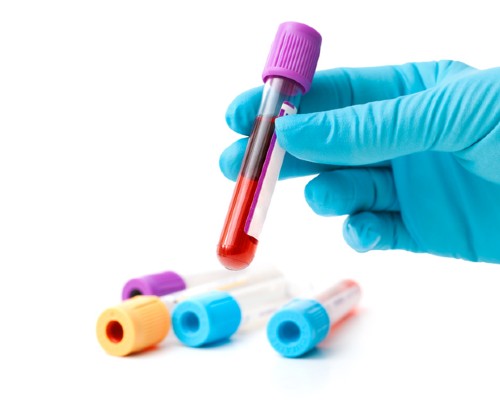Consumers are promised that such tests will help them take control of their health and spot problems early, but BMJ journalist Emma Wilkinson finds that tests often contradict official medical guidance and don’t fully explain the implications of the results for the patient.
Examples of private testing include regular blood tests which promise to predict how many healthy years of life a person has left, a tiredness and fatigue finger prick test that measures iron, thyroid hormones, vitamin levels, and inflammation, and screening with the option of a full refund if users’ results fall within the normal range.
Dr Jessica Watson, a GP and co-author of the linked Opinion piece and National Institute for Health Research (NIHR) Research Fellow at the University of Bristol’s Centre for Academic Primary Care, said: "What's important to understand is that even in healthy people, one in 20 tests results will lie outside of our reference ranges just by chance alone which do not signify disease but understandably can trigger anxiety for patients, and potentially increased workload in the NHS.
"If people are sick or have symptoms, we shouldn't start with patient-led pick and mix testing, as GPs we start by asking questions and by possibly doing an examination and then we carefully pick the right tests for the right patient. There's a real risk if people are choosing their own tests that they might get false reassurance, so my advice to patients is, if you are sick, contact your GP and the NHS can provide tests for you. If you are well, then the NHS would only recommend tests that are recommended by the National Screening Committee, where the benefits outweigh the harms."
In 2019 the Royal College of General Practitioners published a position statement about private health screening, warning that “the organisation initiating the screening should not assume that GPs will deal with the results.”
However, the companies selling tests believe there is a role for private testing. Sam Rodgers, a practising GP in southeast London and chief medical officer at Medichecks, points out that people are directed to their GP after its testing in about 7 per cent of cases, while Nightingale said its tests were for “prediction and prevention rather than diagnosis or treatment” and it didn’t provide test results as such but overall risk information and lifestyle guidance.
Yet it is clear there is wide variation in the amount and accuracy of information provided to consumers when purchasing tests online, writes Wilkinson.
For instance, prostate cancer risk (PSA) testing is available on the NHS for men without symptoms over the age of 50, after a discussion with a GP about the risks and benefits. Yet private tests are easily available with no age recommendation at all, and some contradict official advice about their accuracy.
Wilkinson reports that private tests are also promoted by the NHS endorsed Patient Access app, despite being something that the NHS positively discourages. Shaun O’Hanlon at EMIS, the healthcare IT company behind the app, says that all private provider testing services listed on Patient Access have been selected after a thorough review by the clinical team, which includes UK GPs, while NHS Digital says that services offered through third party apps or websites connected to the NHS app login are the responsibility of the companies providing them.
But experts are calling for better regulation. Dr Margaret McCartney and colleagues say the NHS “needs to robustly explain the criteria for high quality screening and testing, and explain when consumers should be sceptical and what they should question.”
They argue that the Care Quality Commission (CQC) should be empowered to appraise the apps that promote private screening as well as the screening companies themselves, and say placing a responsibility on companies to undertake the further investigation of abnormal test rest results “could help reduce negative impact on the NHS.”
Based on the findings of this investigation, The BMJ has referred two companies to the UK Advertising Standards Authority for misleading claims about the accuracy or detection rates associated with at-home tests. Another removed tests from its website after The BMJ got in touch.
Paper
BMJ Investigation: The rise of direct-to-consumer testing: is the NHS paying the price?
Opinion: Why blood testing companies need effective regulation by J Watson et al. in The BMJ.
